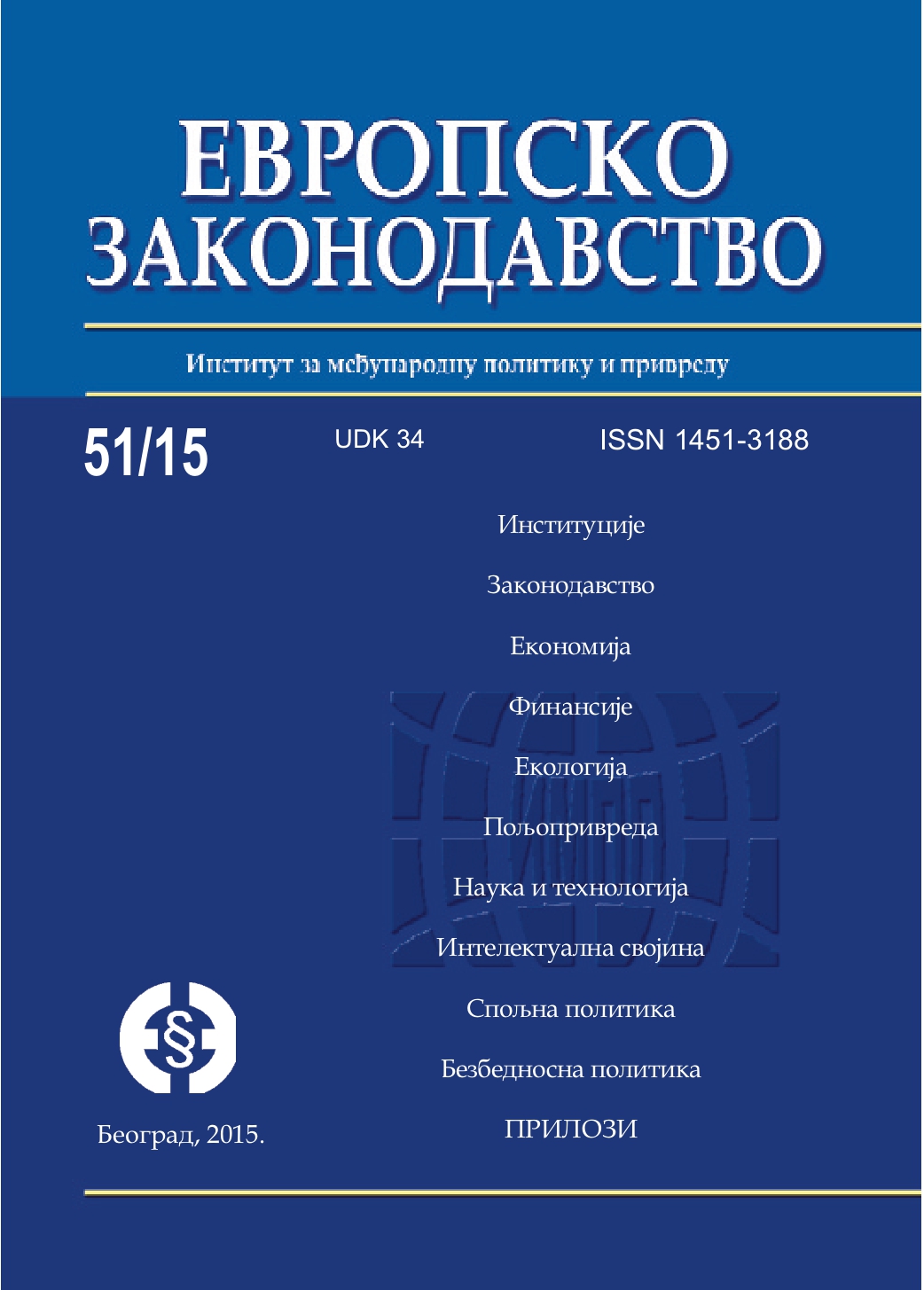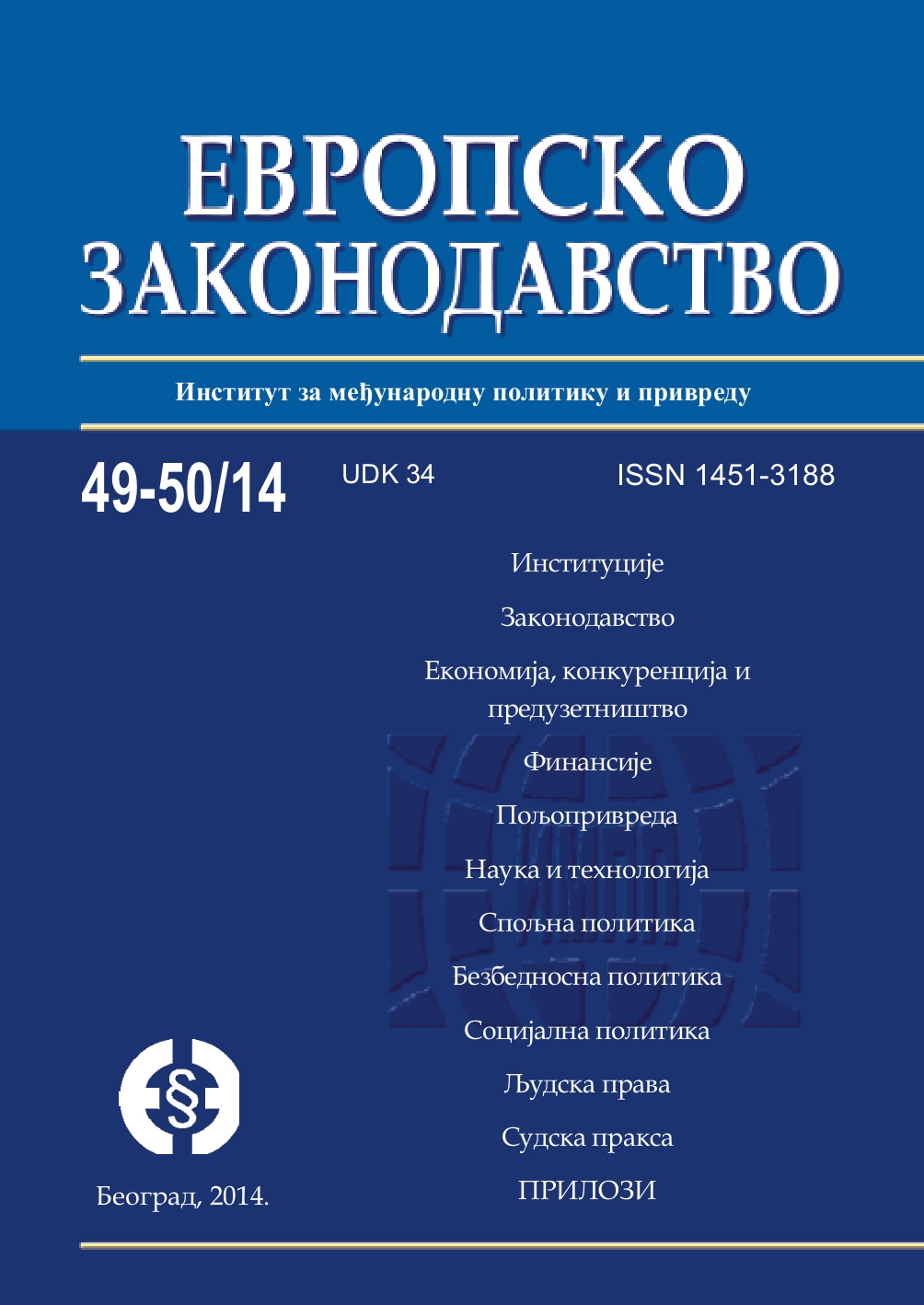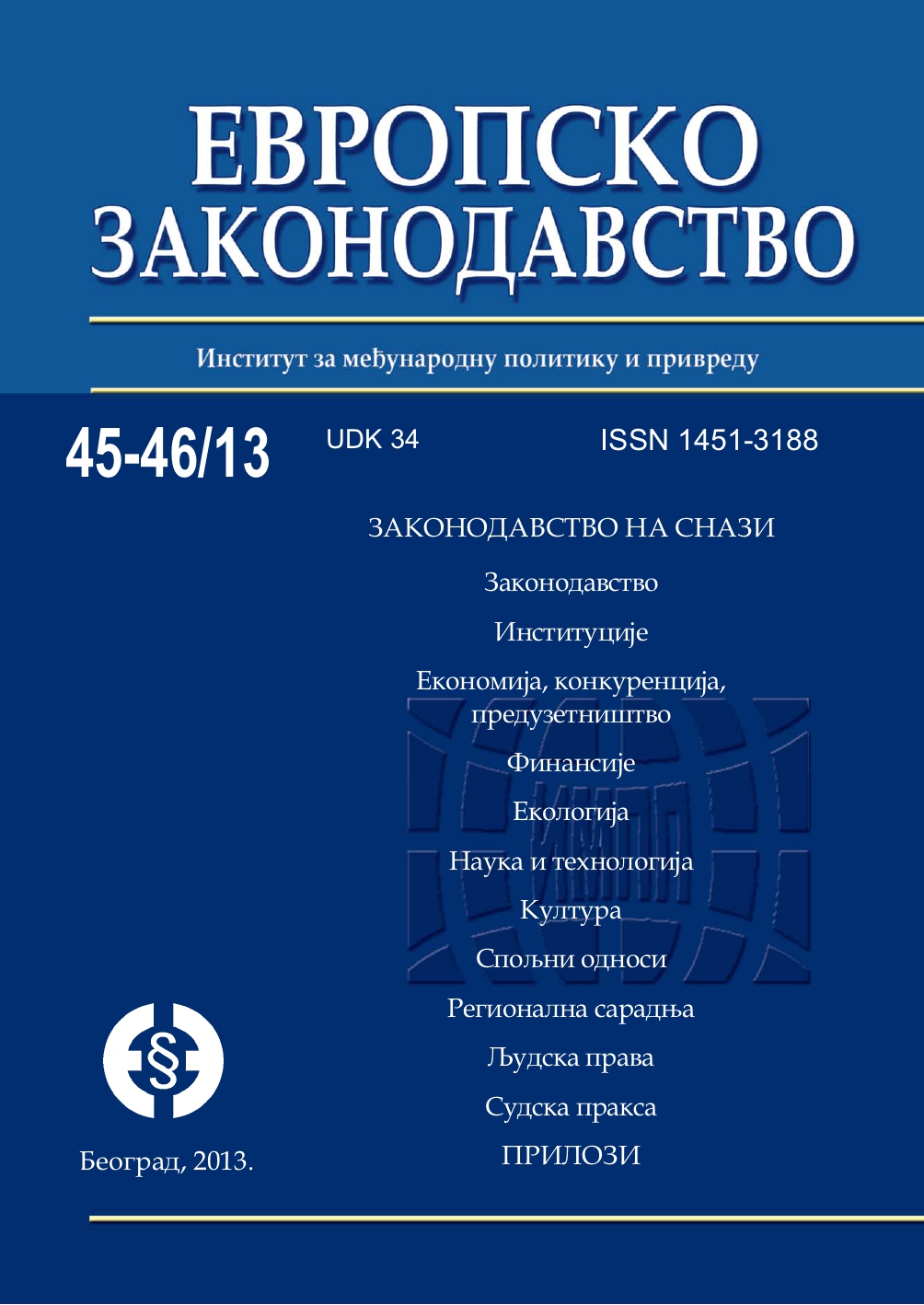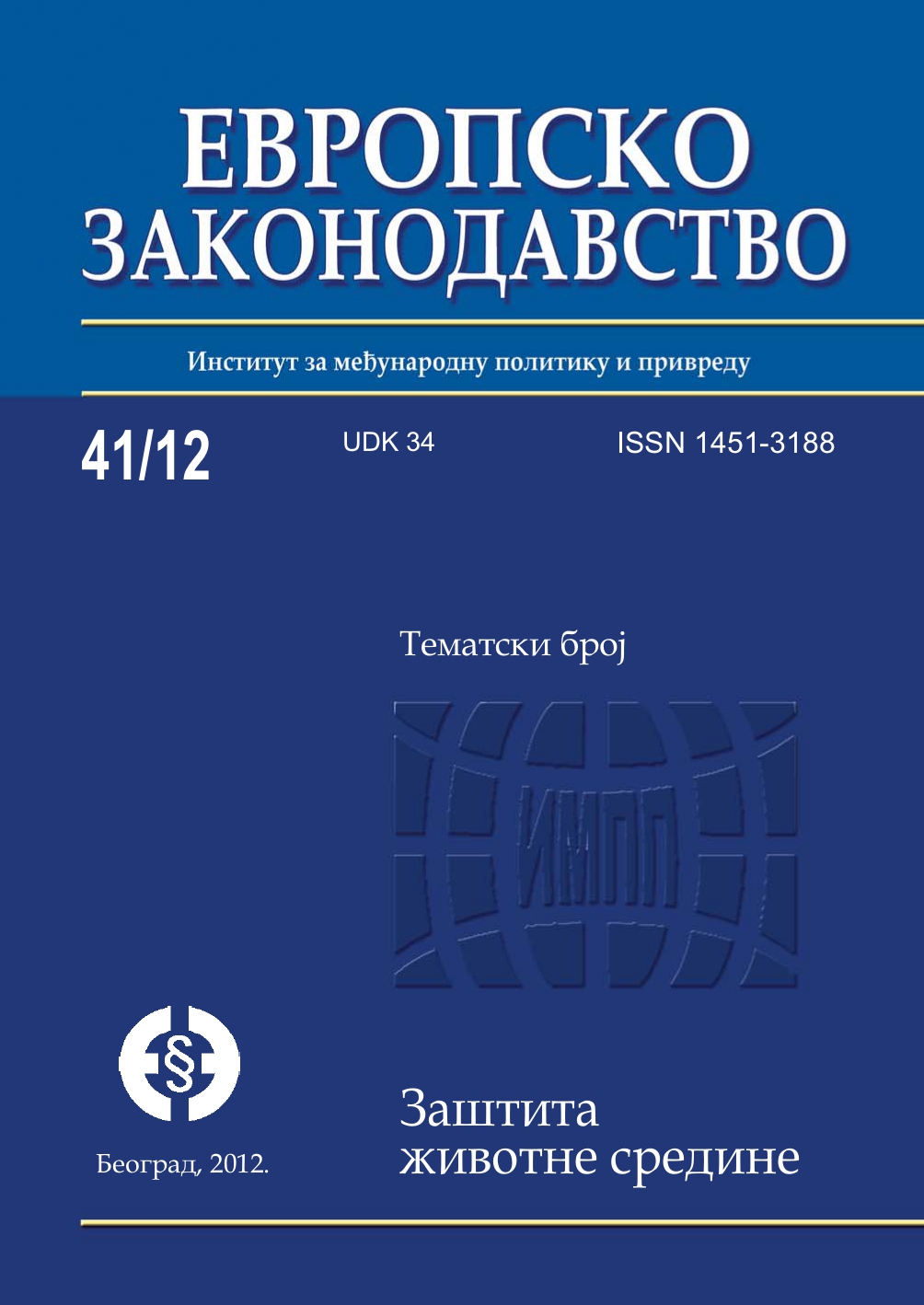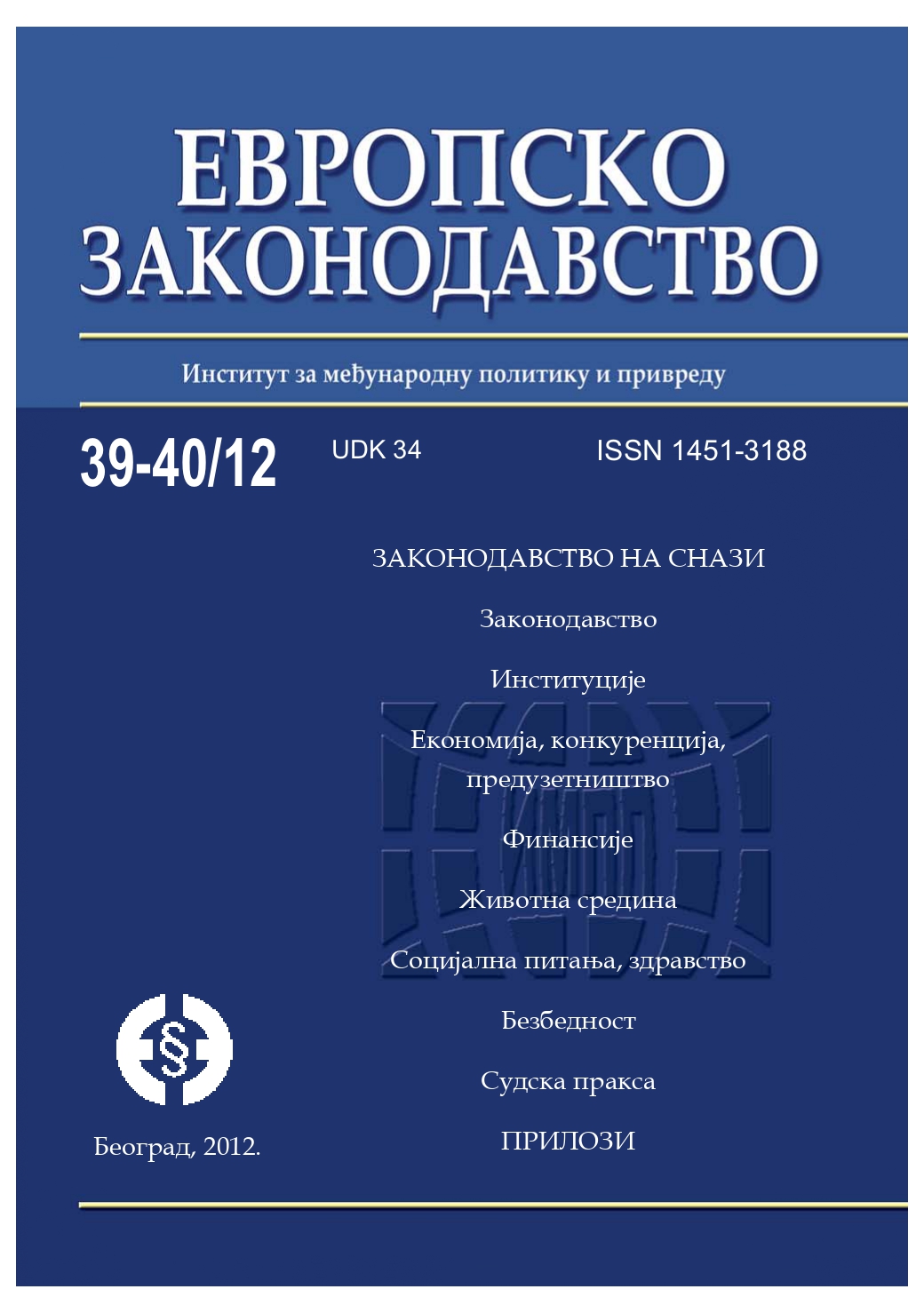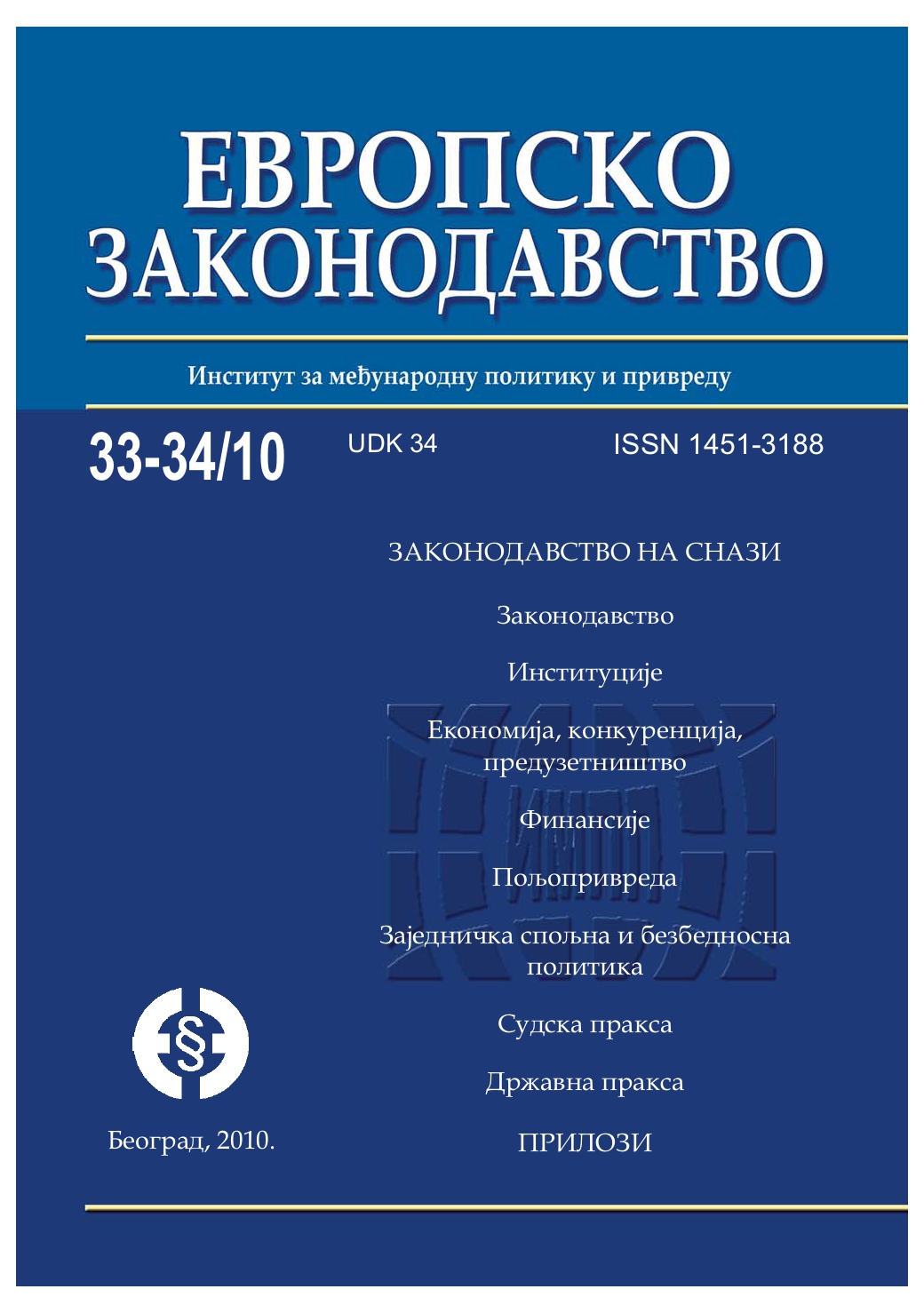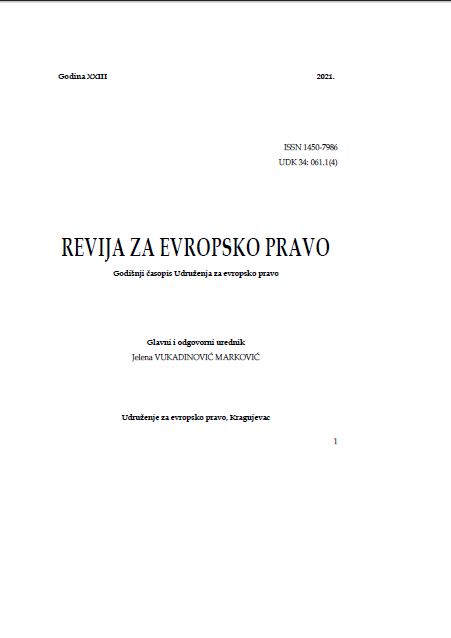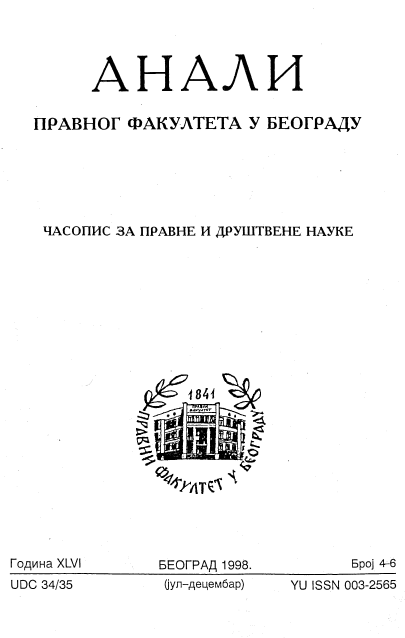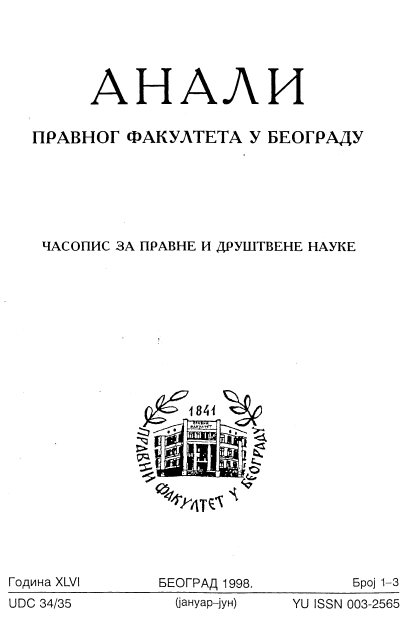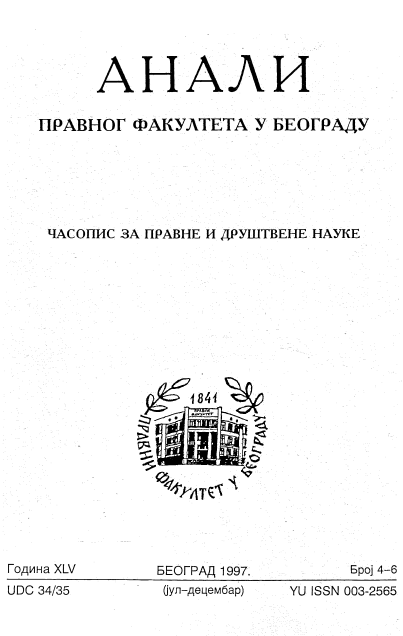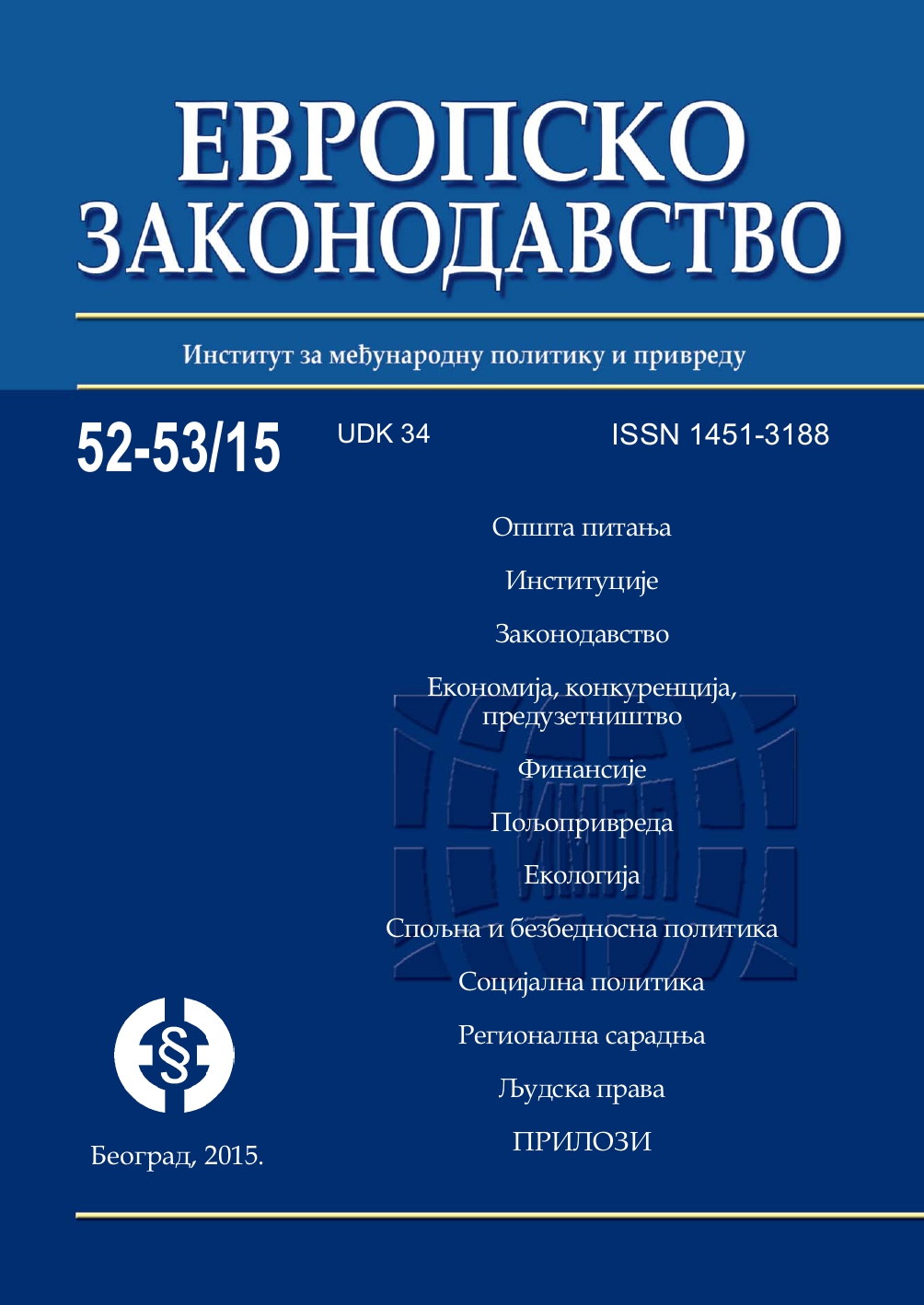
Право на имовину у међународној и европској правној перспективи
The development of the idea of human rights is expressed through the adoption of a number of legal documents. They have seen the pursuit of the recognition of basic human rights which protect the most important human goods such as life, body, health, family, property and others. Although the order of recognition or legal rights started with verification of basic human rights (life and body), the fact is that the aspiration for a more complete and more certain legal protection of property rights of every man was expressed very early . Hence, in the first legal monuments we find provisions that protect the assets of its unlawful seizure and destruction. In the area of human rights assets represent an object of special protection in the form of property rights as basic human rights. By this is meant the right to peaceful enjoyment of possessions without the possible legal and factual disturbance by third parties. Taking into account the achievement of legal protection of property rights, the author will point out in the work the basic features of this right in international and European legal framework and case law.
More...
